

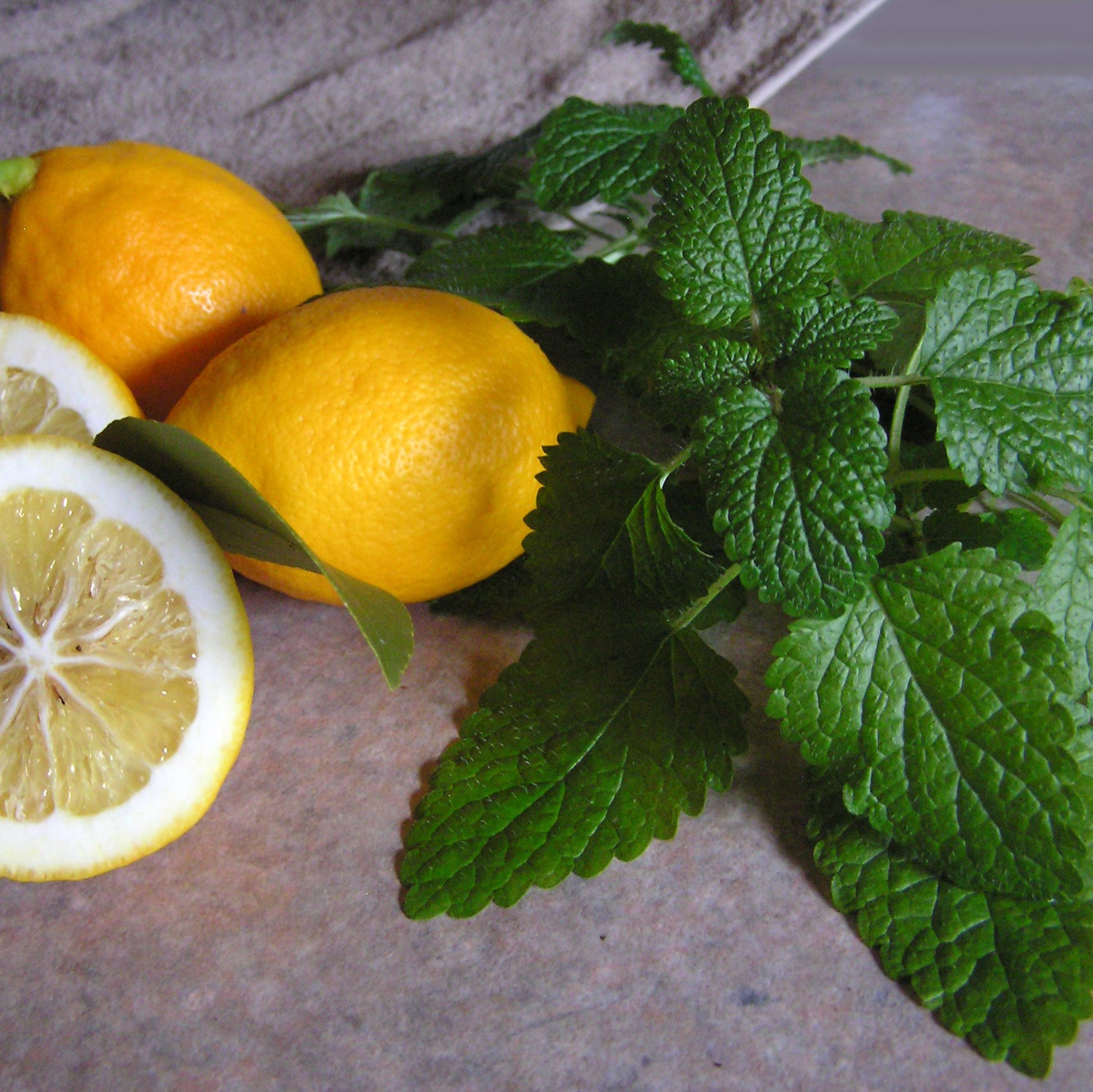
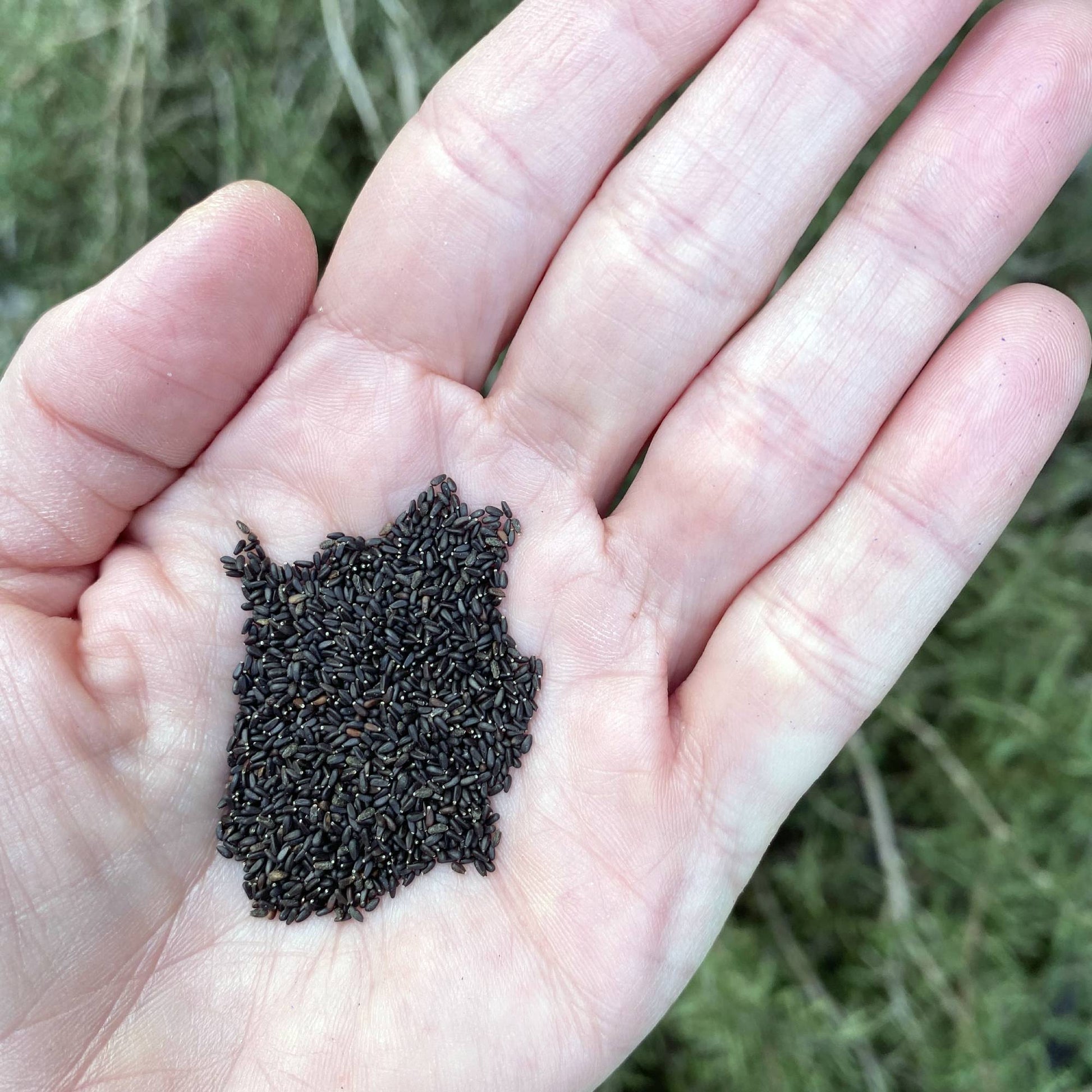
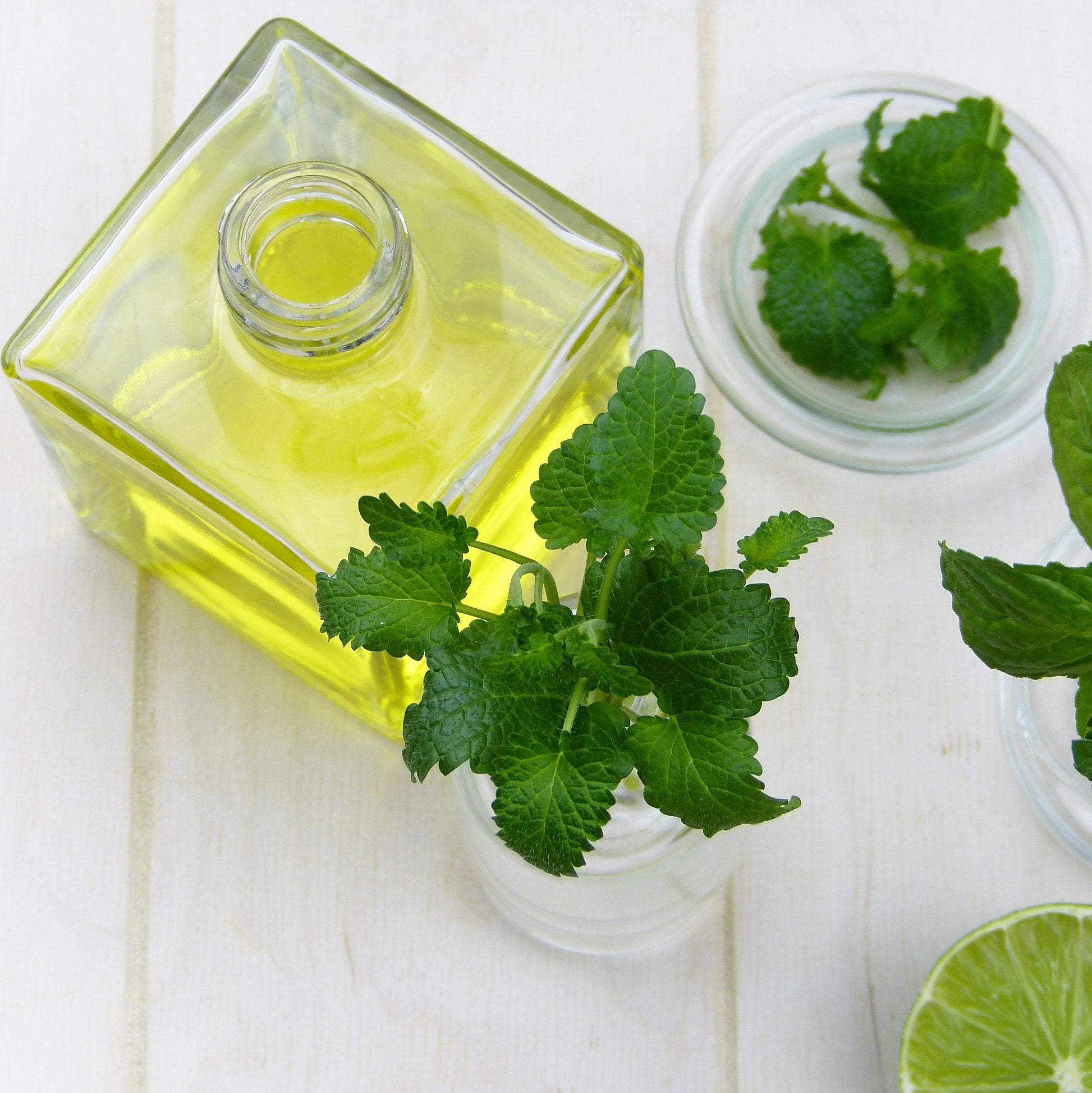
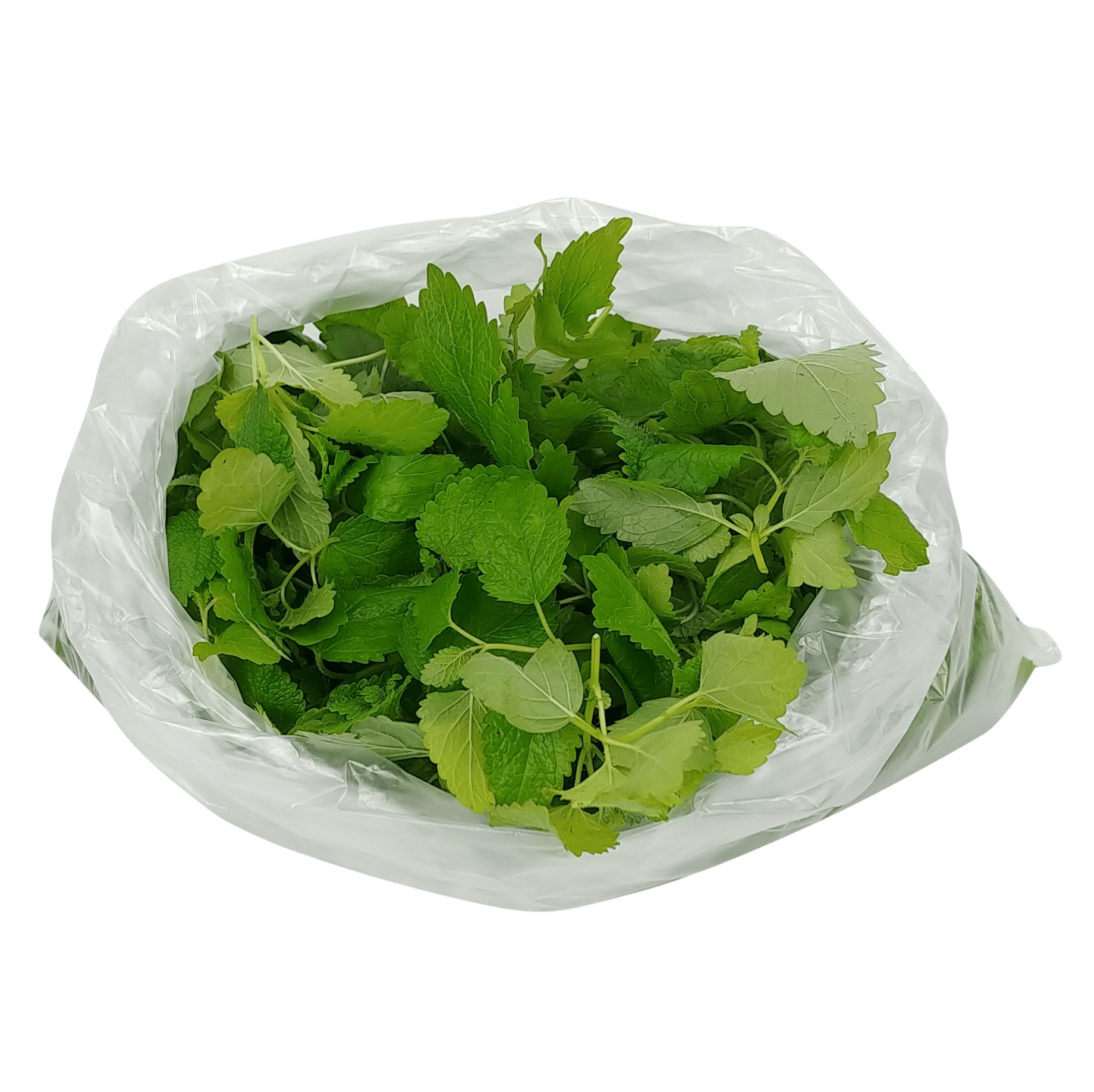
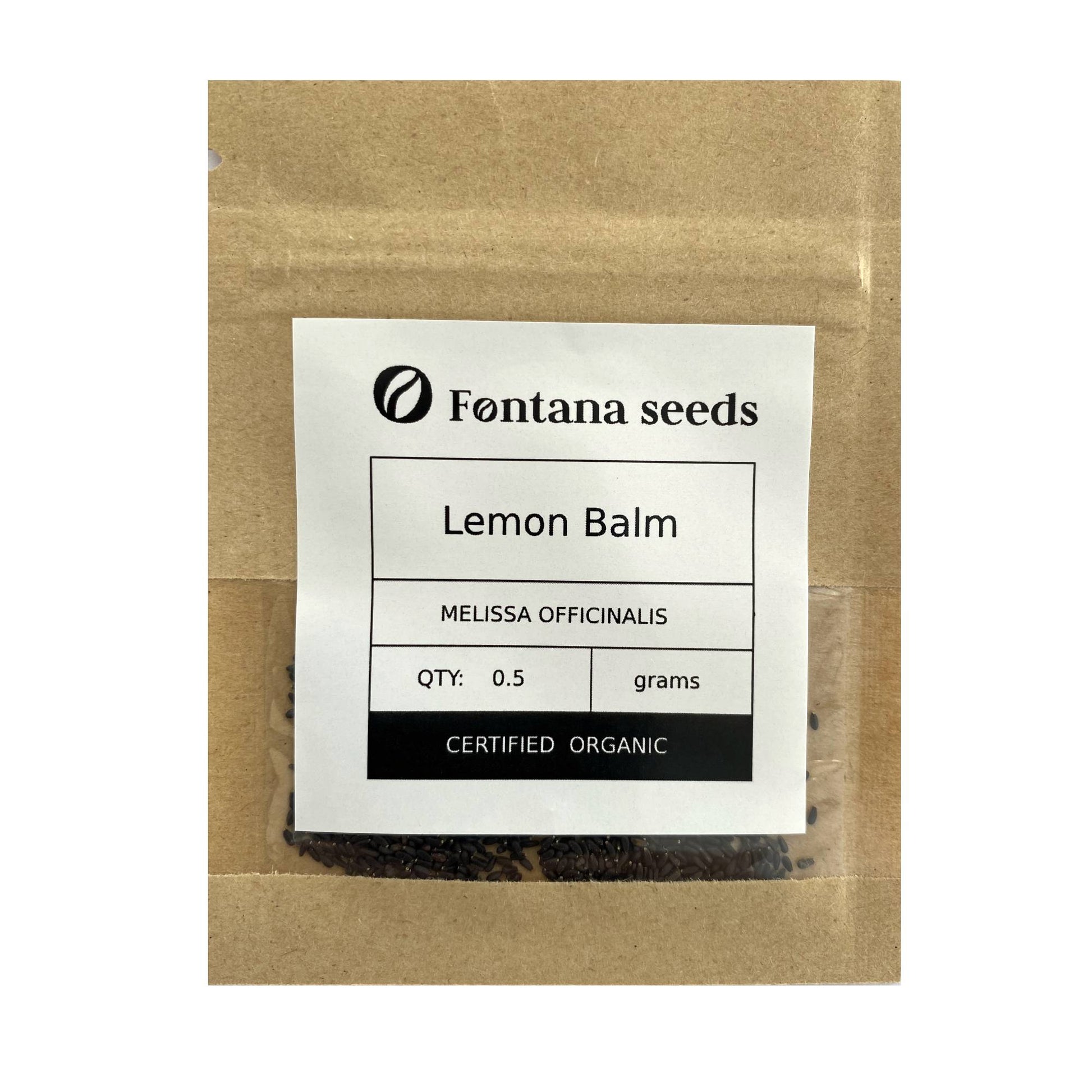
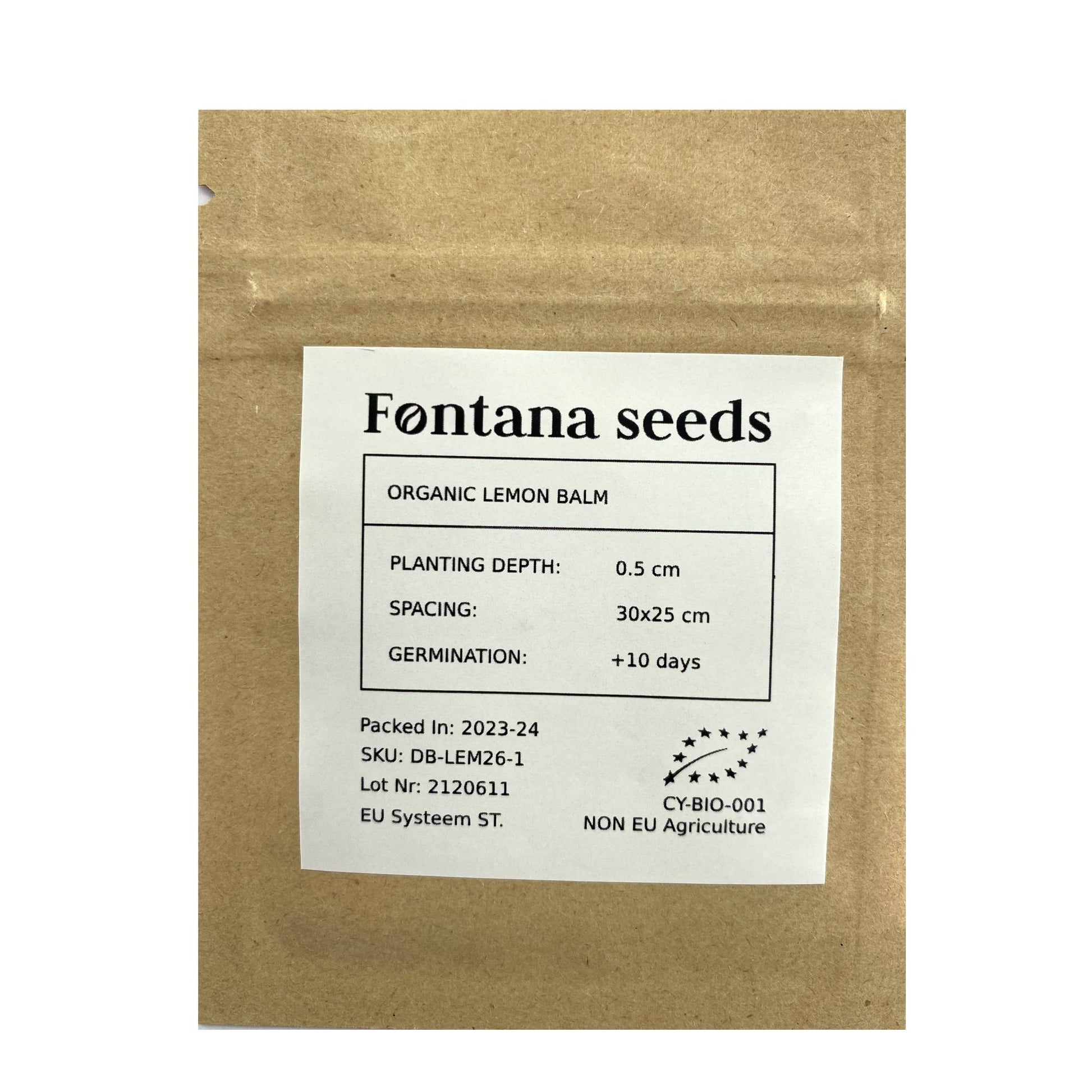
Organic Lemon Balm
- Traditionally valued as a medicinal herb
- Lemon Balm can be grown indoors or directly outdoors.
- Fresh or dried leaves make a great cold or hot tea
- 0.5g per pack (enough to plant 15 square meters!)
-
Shipping Cost ONLY €3.75 for all EU Countries!
Like to grow a garden filled with the aromatic Lemon Balm herb, from freshly harvested Melissa officinalis seeds? Lemon Balm is a highly sought after herb, used mainly for its leaves. The aromatic foliage can be used to make refreshing lemon balm tea or added to soups and oils for a tangy lemon flavour. Lemon balm flowers are particularly attractive to bees giving rise to its other name, bee balm.
Lemon Balm plants will produce small white flowers, during the summer months. These flowers can attract all sorts of beneficial insects to the garden, such as butterflies, bumblebees, honeybees and even hummingbirds as well.
Lemon Balm is categorized as a perennial flowering herb, which produces year after year. The plants grow quickly in the first season, establishing a deep root system to later return after the killing frost has passed. Flowers for the Lemon Balm herb may not appear until the second successful growing season.

We keep it simple: shipping is a flat-rate €3.75 to any address in the European Union. Orders are packed on the sunny island of Cyprus and handed to the carrier within 1–3 working days. We ship by regular mail with delivery confirmation. As soon as your parcel leaves us, you’ll receive an email with a tracking link so you can follow it in real time. Typical delivery time is 5–15 business days, depending on destination and your local mail service. We currently ship within the EU only.
What Our Gardeners Are Saying
Real reviews from people who planted, grew, and loved it.
"Delighted. Sowed 15 hollyhock seeds to stagger planting, got 15 plants, now to Keep alive over winter in small greenhouse. Did autumn sowing of wildflowers in pots, have 4 pots of seeds germinated."
“Excellent company, 1st class seeds and 100% germination. Fast delivery. Have ordered twice and will continue to use Fontana Seeds.”
“Super selection and quickly delivered to Malta with full instructions how to prepare and take care of each item. Highly recommend 🌹”
“Ordered some seeds which arrived promptly and beautifully packaged. Very pleased.”
“Quick service. Very good quality seeds with excellent results after planting!”
"THE PRODUCT WAS WELL PACKAGED, ARRIVED IN A TIMELY MANNER AND I WAS FULLY INFORMED OF THE PROGRESS OF THE ORDER AND IT`S DELIVERY PROCESS."
"We've had some lovely flowers from the seeds. Great company."
"Seeds were delivered promptly & every one I used grew beautifully"
"Quick Delivery, good quality - that pretty much sums it up ;)"











